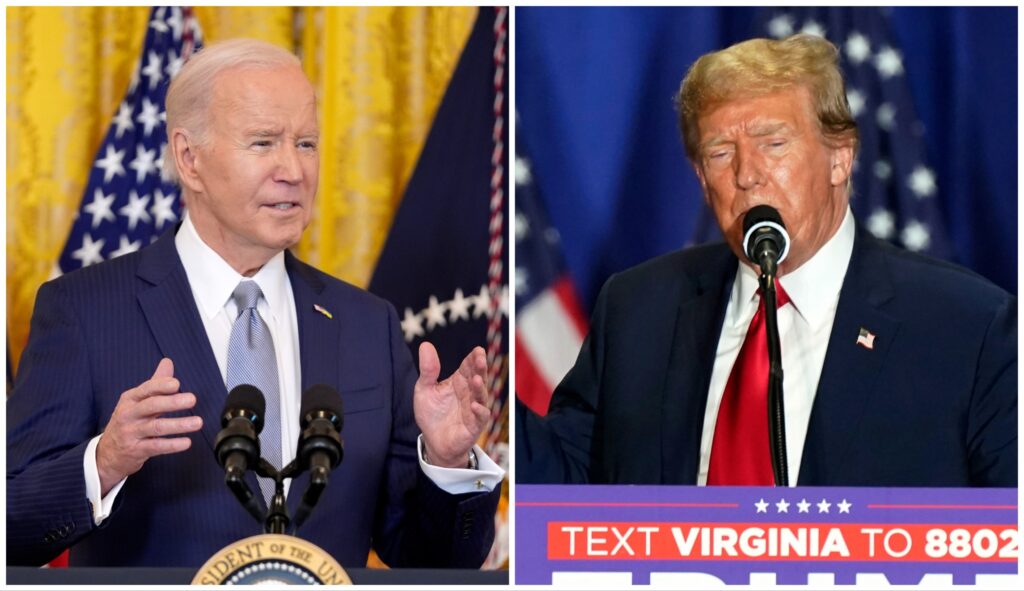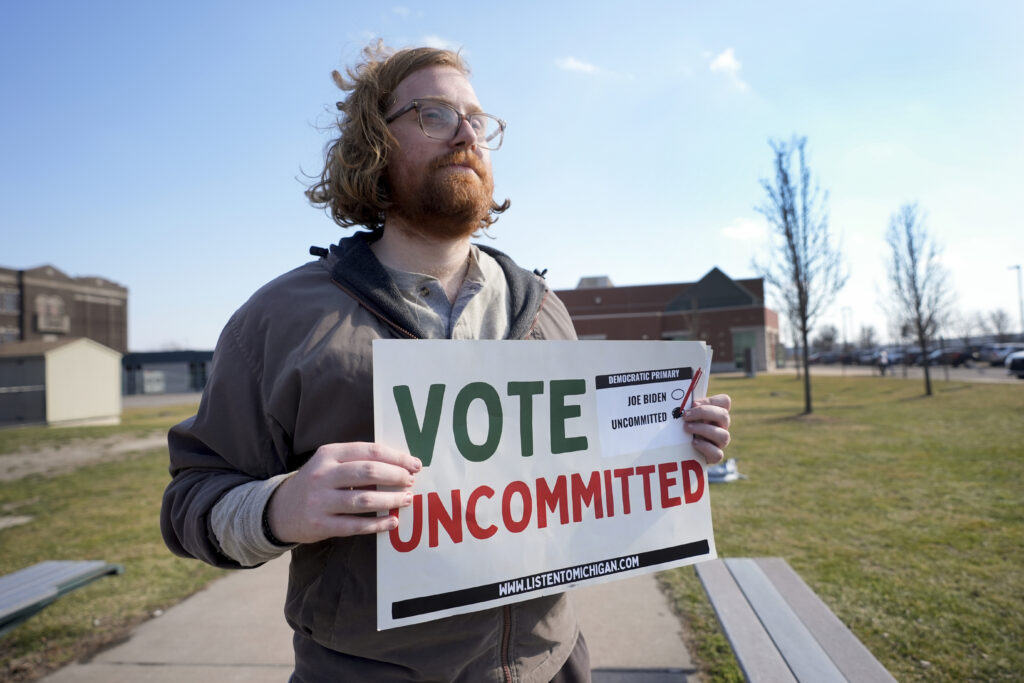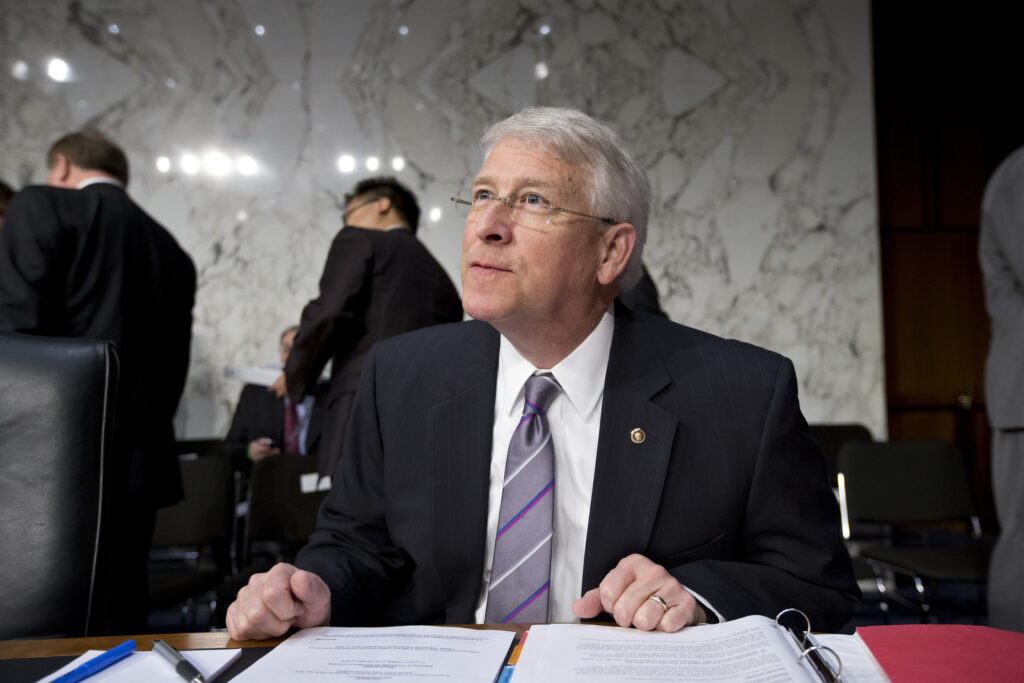
President Joe Biden and former President Donald Trump are set to reach the thresholds to become their parties’ presumptive presidential nominees after Tuesday night election results roll in.
One week after Super Tuesday, voters in Georgia, Hawaii, Mississippi, and Washington state will head to the polls on Tuesday, along with Democrats in the Northern Mariana Islands and Democrats abroad.
ELECTION 2024: FOLLOW LATEST COVERAGE
At stake for Trump on Tuesday are 161 delegates from Georgia, Hawaii, Mississippi, and Washington. In addition to the 1,075 delegates Trump already has, the delegates up for grabs on Tuesday will push him over the 1,215-delegate threshold to become the GOP nominee.
Biden has amassed 1,866 delegates during the primary season, which is very close to the 1,968 delegates needed to become the Democratic nominee. With little opposition, he will win enough of the 254 delegates in Georgia, Mississippi, the Northern Mariana Islands, Washington, and Democrats abroad at stake on Tuesday to reach the threshold.
Here’s what to watch out for on Tuesday.
The general election matchup is set

By Tuesday night, Biden and Trump will become the two candidates who will face off on the November ballot.
Former U.S. Ambassador to the United Nations Nikki Haley‘s exit from the primary race one day after Super Tuesday all but cleared the path for Trump. The Republican National Committee’s spring meeting in Houston, Texas, last week already recognized him as the presumptive GOP nominee.
Democratic challenger Marianne Williamson is little match for the incumbency advantage that Biden has. Rep. Dean Phillips (D-MN), another key Biden challenger, dropped out of the race after an abysmal showing after Super Tuesday.
During Super Tuesday, Democrat Jason Palmer, a relatively unknown candidate, blocked Biden from a clean sweep during the American Samoa nominating contest. The two will face off again in the Northern Mariana Islands primary, but the results won’t block Biden from the nomination.
Biden and Trump are now set for one of the longest general election campaigns in modern history.
Trump will accept the nomination at the Republican National Convention in Milwaukee, while Biden will accept the nomination at the Democratic National Convention in Chicago.
Biden’s uncommitted vote headache

After organizers were able to amass more than 101,000 “uncommitted” votes, or 13.2%, during Michigan’s primary last month, the movement spread to several Super Tuesday states. In Minnesota, home to a sizable population of Muslim Americans, the “uncommitted” vote received more than 45,900 votes, or 18.9%.
This week, voters in Washington have the option to cast an “uncommitted delegates” vote in a display of anger at Biden’s handling of the Israel-Hamas war in the Middle East.
Organizers for Vote Uncommitted WA, who are pushing for a ceasefire in the war, are hoping thousands of voters will snub Biden during the primary. Vote Uncommitted WA describes itself as a multiracial, multifaith antiwar campaign that is pushing back against “Biden’s funding of war and genocide in Gaza.”
The group has spent at least two weeks connecting with voters about the protest vote and claims it will send “a message to the leaders of the Democratic Party.”
Mississippi’s congressional races

The presidential primary isn’t the only race on the ballot on Tuesday. Sen. Roger Wicker (R-MS), who is seeking a fourth full term, is on the ballot against two other Republican challengers.
GOP voters will also decide on primary races in the 2nd and 4th Congressional Districts.
In the 2nd District, Ronald Eller, a retired captain in the U.S. Army, Andrew Smith, an insurance agency owner, and Taylor Turcotte, an advertising agency owner, are vying to become the Republican who will take on longtime incumbent Rep. Bennie Thompson (D-MS), former chairman of the U.S. House Jan. 6 select committee, in November.
CLICK HERE TO READ MORE FROM THE WASHINGTON EXAMINER
Democrat Craig Raybon is running unopposed to take on the winner of the GOP primary in the 4th District, featuring incumbent Rep. Mike Ezell (R-MS), Carl Boyanton, a produce broker, and Michael McGill, a retired Army combat veteran.
Democratic voters will cast ballots in the 1st Congressional District primary between Dianne Black, a salon owner, and Matthew Williams, a writer and educator. The winner will run against incumbent Rep. Trent Kelly (R-MS).






